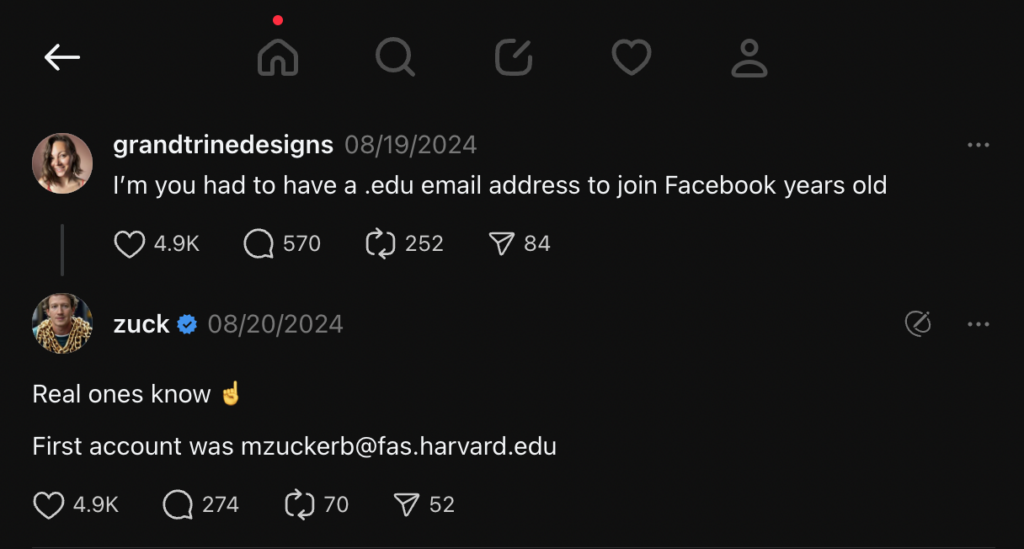Earlier this month, Meta Platforms, Inc. CEO Mark Zuckerberg shared the email address he used to create his first Facebook account, stirring up a sense of nostalgia among users.
What Happened: During a conversation on Threads, a social networking platform, on Aug. 20, Zuckerberg disclosed the email address he used for his first Facebook account.
“Real ones know. First account was mzuckerb@fas.harvard.edu,” he posted.
This reminded users of the time when a .edu domain was a prerequisite to joining Facebook, a policy that was in effect when the platform was launched in 2004, primarily for Harvard University students.
See Also: Google Chrome To Trigger Vibrations On Your Smartphone When You Do This
The requirement for a college email was a way to ensure that only students from accredited institutions could join, which contributed to the site’s exclusivity and appeal at the time
Gradually, by 2006, Facebook broadened its membership criteria, allowing non-students to join, marking a significant shift from its original focus on college students.
This change was partly driven by the need to accommodate users who graduated and wanted to maintain their connections on the platform.
Subscribe to the Benzinga Tech Trends newsletter to get all the latest tech developments delivered to your inbox.

Why It Matters: Facebook rebranded itself as Meta in 2021. This change was primarily motivated by Zuckerberg’s vision to shift the company’s focus from being perceived solely as a social media platform.
He intended to make Meta a leader in developing the “metaverse,” a concept referring to a shared, immersive virtual environment where users can interact in a 3D space.
Zuckerberg’s Meta currently has a market capitalization of $1.307 trillion, making it the seventh most valuable company in the world.
In July, the tech giant reported a second-quarter revenue of $39.07 billion, surpassing analyst estimates of $38.31 billion.
Photo courtesy: Shutterstock
Check out more of Benzinga's Consumer Tech coverage by following this link.
Read Next:
Disclaimer: This content was partially produced with the help of AI tools and was reviewed and published by Benzinga editors.
© 2025 Benzinga.com. Benzinga does not provide investment advice. All rights reserved.
Trade confidently with insights and alerts from analyst ratings, free reports and breaking news that affects the stocks you care about.